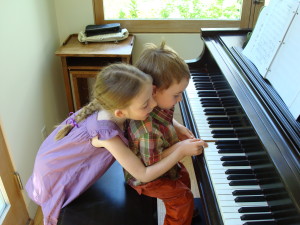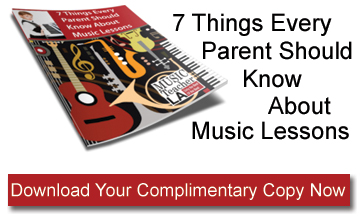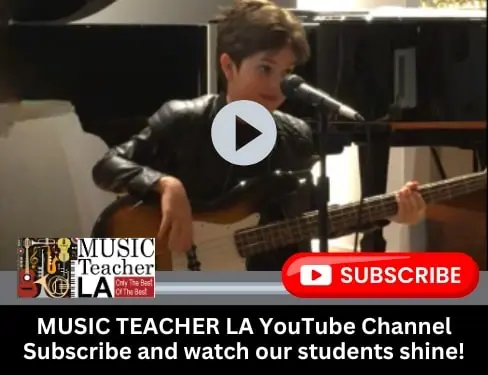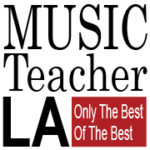What is the best age to start Piano Lessons for your child?
 Parents who enroll their children in private music lessons early on provide a powerful boost for their youngsters’ overall development. A number of studies suggest that formal music lessons increase children’s brain growth and neurological processes. Moreover, early music education helps develop hand-eye coordination and improves language skills. It also teaches to use both the left and right sides of the brain simultaneously. Besides the developmental benefits, music education develops discipline, patience, and music appreciation. Furthermore, it instills confidence and therefore builds character. Lastly, studies show that adults who played musical instruments in their childhood process the sound better. That, in turn, helps them to keep their hearing sharp in old age. So, what is the best age to begin piano lessons?
Parents who enroll their children in private music lessons early on provide a powerful boost for their youngsters’ overall development. A number of studies suggest that formal music lessons increase children’s brain growth and neurological processes. Moreover, early music education helps develop hand-eye coordination and improves language skills. It also teaches to use both the left and right sides of the brain simultaneously. Besides the developmental benefits, music education develops discipline, patience, and music appreciation. Furthermore, it instills confidence and therefore builds character. Lastly, studies show that adults who played musical instruments in their childhood process the sound better. That, in turn, helps them to keep their hearing sharp in old age. So, what is the best age to begin piano lessons?
A piano is the best and easy first instrument to learn
- The child just needs to press the key to produce a sound
- The concept of positioning both hands on the keys is easily understood
- Kids who start taking piano lessons at age 4-5 naturally curve their fingers
- A comprehensive knowledge acquired in piano lessons can later be applied to any other instrument.
The best age for kids to begin taking piano lessons
I have been providing in-home Piano lessons in the Los Angeles area since 1991. My personal experience, backed by Chinese research and also the study of the University in California, shows that children greatly benefit from starting private piano training as early as age 4. At that age, the brain circuits for learning music mature. However, since every child is an individual in his abilities and development, it is important to evaluate their readiness. We look into the emotional, mental, and physical readiness before engaging children in piano lessons. In addition, your parental readiness and support are essential.
Emotional Readiness
I have noticed that it is easier to teach a 4-year-old student to play the piano when he shows an interest in learning an instrument from the start. Those students concentrate on learning the material and look forward to studying a new song. Focus is an important part of the learning process, as well as the ability to listen to the teacher and follow directions. Moreover, the student who does not want to learn the piano, but gets enrolled in the lessons by his convinced parents will perform poorly. That is frequently true despite the entertaining and engaging music material and fun music games that our skilled piano teachers offer during lessons.
Mental Readiness for Private Piano Lessons
A student needs to have a basic understanding of counting to begin private piano lessons. Young children learn to number their fingers, 1 through 5. Then, they position the correct finger number on the keys. Not only do we create fun games for kids to perfect finger-key coordination, but, as a piano teacher, I enjoy playing the finger number learning games with students as well. Additionally, the kids learn to count music beats and rhythms. Overall, the piano learning experience is fun and engaging!
Furthermore, music is made up of notes. Each note has a letter name. The 4-year-olds need to understand the alphabet concepts and know at least the letters of the music alphabet, or A through G. That’s 7 letters of the music alphabet to remember!
Lastly, students will need to be able to move each finger independently in order to translate the note reading to the finger movements. That takes practice. We help children to improve their technicality through piano finger marching games, crocodile dives, chocolate chip cookie games, and many more!
Physical Readiness for Private Piano Lessons
Students should have basic motor and hand-eye skills to begin lessons. A typical 4-year-old child will quickly improve his coordination in piano lessons by learning to read notes and pressing the keys at the same time.
Parental Readiness for Private Music Lessons
Parental support and willingness to help children develop a daily practice routine will help them to progress faster, take lessons more seriously, and stay motivated. We see great results in children’s progress when we have parents or nannies on board. They, in turn, schedule daily piano practice time for kids and communicate with us about possible challenges during practices at home.
Music education at an early age is very important in children’s overall development. All of our Los Angeles piano teachers are experienced in working with very young children and keeping the lessons fun and engaging.
Ready to schedule your children’s initial piano lessons?
Call us today at (310) 220-0405, or learn more about our piano lessons at http://MusicTeacherLA.com/Los-Angeles-Piano-Lessons/





